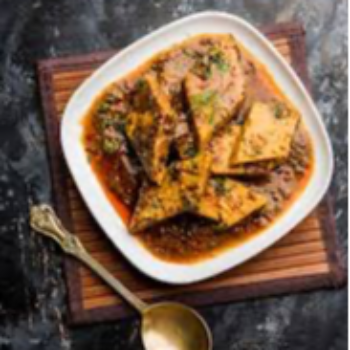In the bustling city of Nagpur, where the vibrant hustle and bustle never seem to rest, lives the Rao family. Like many urban families, the Raos find themselves caught in the whirlwind of modern life where time is elusive, and the desire for connection often takes a backseat to daily responsibilities. Amidst this chaos, one thing stands out as a beacon of connection and tradition—their love for traditional Indian cuisine, particularly Patodi.
For the Raos, food is more than sustenance; it's a bridge that connects generations. Kavita Rao, the family matriarch, recalls her childhood in a small village where her grandmother would prepare Patodi with love and precision, filling the house with its rich aroma. Now, living in a fast-paced city, Kavita yearns to recreate those cherished moments with her own family. However, the challenge is real—balancing work, school, and household chores leaves little room for elaborate meal preparations.
Enter Patodi, a traditional Indian dish that has been a staple in Maharashtrian households for generations. Made primarily with chickpea flour and spices, Patodi is not just a dish; it's a symbol of heritage and familial bonding. The Rao family discovered a local eatery that specializes in this delicacy, and it has since become a vital part of their weekly routine.
But why is Patodi the perfect solution for families like the Raos? The answer lies in its ability to solve a distinct problem faced by many modern families the lack of time to prepare traditional meals that bring everyone together. In a world where fast food and takeout have become the norm, Patodi offers a practical solution by providing a quick yet authentic option for busy households.
Imagine a typical evening at the Rao household. Sunil Rao, the family's breadwinner, returns home after a long day at the office. He's greeted by the comforting aroma of Patodi simmering in the kitchen. His children, Riya and Aarav, are already at the table, eagerly waiting for dinner. As they gather around the table, the conversation flows effortlessly. The warmth of the meal transcends their busy schedules and unites them, even if just for an hour.
Kavita reflects on how Patodi has transformed their mealtimes. "It's like bringing a piece of our heritage into our home," she says. "Despite our hectic lives, we can still enjoy a dish that reminds us of who we are and where we come from."
The significance of Patodi goes beyond just taste. It represents a connection to one's roots and a means to pass down cultural values to the next generation. For families like the Raos, it serves as a reminder that amidst the rapid pace of modern life, there is value in pausing to savor the simple pleasures that food brings.
Moreover, Patodi's appeal isn't limited to its cultural significance. Its nutritional benefits are noteworthy as well. Made with chickpea flour, it's rich in protein and fiber, making it a healthy addition to any meal. For health-conscious families, Patodi is a guilt-free indulgence that satisfies both the palate and nutritional needs.
In the broader context, Patodi exemplifies a growing trend in urban India where traditional foods are making a comeback, catering to those who crave authenticity amidst modernity. It stands as a testament to the evolving culinary landscape where old meets new, and tradition finds its place in contemporary living.
So, for every family navigating the complexities of modern life, Patodi offers more than just a meal. It provides a solution to the age-old problem of finding time to connect, to share, and to celebrate culture through food. As the Raos will tell you, sometimes all it takes is a simple dish to transform chaos into harmony, one meal at a time.
Visit Vyaparify Site:
https://id.vyaparify.com/amar-saoji-bhojnalay 
